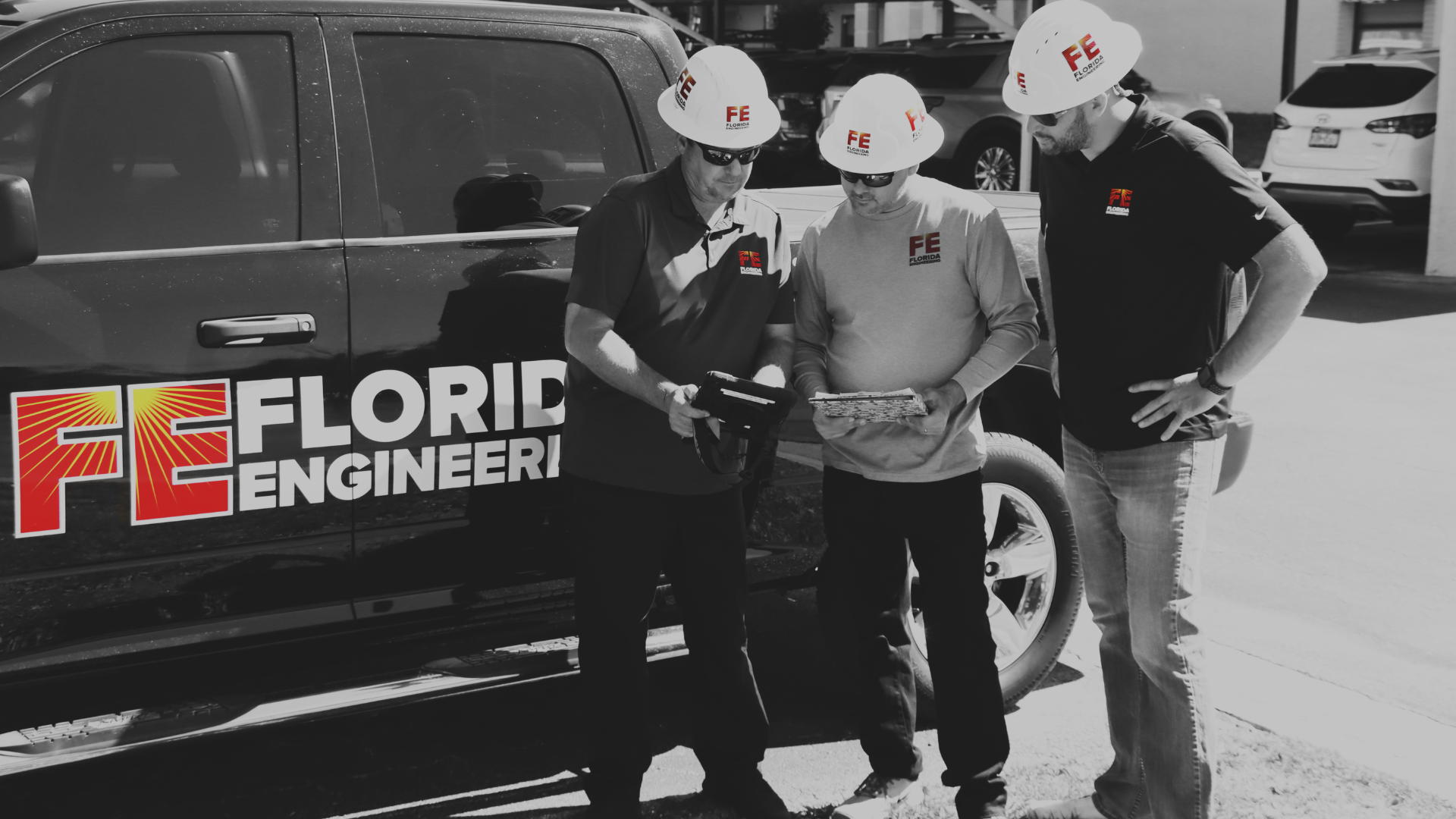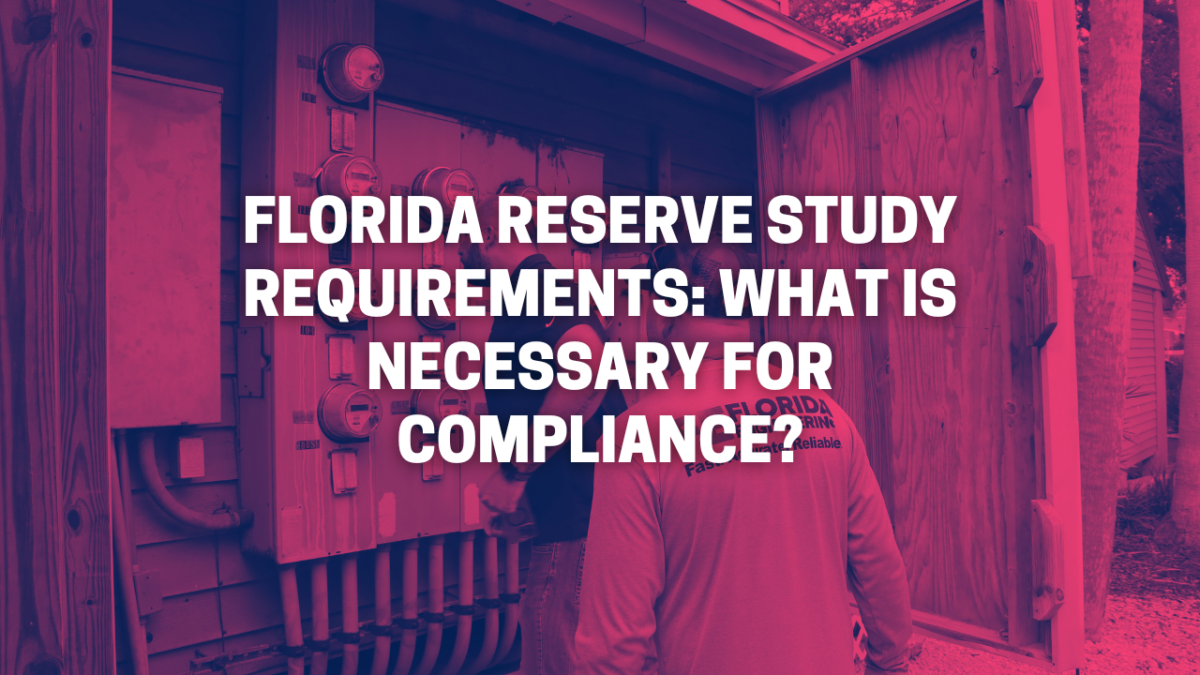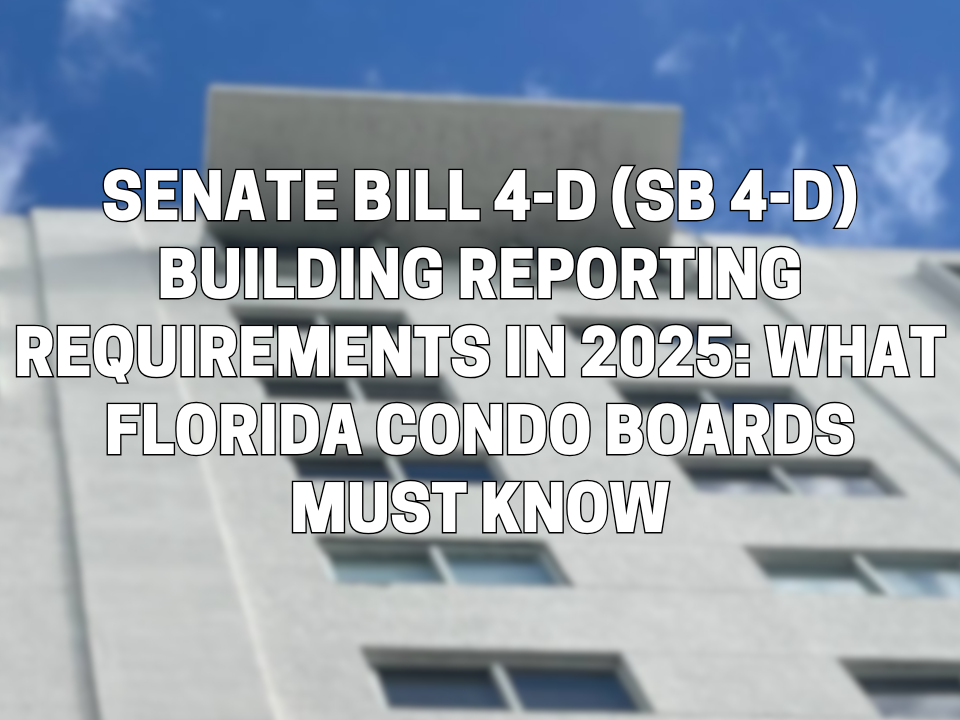Safety, compliance, and financial foresight are pillars of responsible property management. The Florida A well-executed reserve study is crucial for maintaining the financial health and structural integrity of a condominium association. Recent legislative changes in Florida, particularly Senate Bill 4-D, have set forth stricter guidelines on reserve studies to prevent financial shortfalls and structural deterioration.
With the December 31, 2024, deadline for initial reserve studies on existing buildings approaching, now is the time for associations to ensure compliance. In this guide, we’ll break down Florida’s reserve study requirements, their impact on property owners, and how to navigate them successfully.
Table of Contents
- What is a Reserve Study?
- New Florida Reserve Study Requirements Under SB 4-D
- Structural Integrity Reserve Study (SIRS) vs. Traditional Reserve Study
- Specific Reserve Funding Requirements
- Financial Planning and Budgeting for Reserve Studies
- Compliance and Enforcement
- How to Ensure Compliance
- Partnering with Florida Engineering
- FAQs
What is a Reserve Study?
A reserve study is a financial planning tool that helps condominium associations prepare for future maintenance and replacement of common property elements. It assesses:
- The current condition of structural components
- Their remaining useful life
- Estimated replacement costs
- Funding strategies to ensure necessary repairs can be made without unexpected financial strain on homeowners
In Florida, reserve studies play a crucial role in maintaining the long-term safety and financial stability of buildings, especially after the Surfside condominium collapse in 2021.
New Florida Reserve Study Requirements Under SB 4-D
Senate Bill 4-D, signed into law in 2022, established mandatory reserve study requirements for condominium associations. Here’s what you need to know:
- Frequency: Reserve studies must be conducted every 10 years.
- Initial Deadline: Existing buildings must complete their first study by December 31, 2024.
- Who Performs the Study? A licensed engineer or architect must conduct the study.
- Scope: The study must account for all major structural components over a 30-year period.
- Reserve Fund Allocation: Associations can no longer waive full funding for reserves.
This legislation ensures that condominiums are financially prepared for repairs and replacements before structural issues become hazardous.
Structural Integrity Reserve Study (SIRS) vs. Traditional Reserve Study
Florida’s legislation introduced the Structural Integrity Reserve Study (SIRS) as a specialized assessment focusing on critical structural components.
| Feature | Structural Integrity Reserve Study (SIRS) | Traditional Reserve Study |
|---|---|---|
| Purpose | Ensures safety and longevity of structural components | Covers structural and non-structural elements |
| Focus | Load-bearing walls, foundation, roofing, floor systems, etc. | Includes painting, paving, landscaping, and amenities |
| Inspection | Visual, non-invasive (with potential phase two if needed) | General condition assessment |
| Funding Requirements | Mandatory full funding of reserves | Previously, associations could waive full funding |
The SIRS is mandatory for condominiums three stories or more, ensuring a proactive approach to preventing catastrophic failures.
Specific Reserve Funding Requirements
Florida law now mandates that reserve funds must cover key structural elements, including:
- Roofing systems
- Load-bearing walls
- Floor and ceiling assemblies
- Foundations
- Electrical, plumbing, and mechanical systems
The new Florida condo laws in 2024 eliminate the option to underfund reserves, ensuring full financial preparedness for future repairs.
Financial Planning and Budgeting for Reserve Studies
Condominium associations must now fully fund reserves based on the estimated costs outlined in their SIRS. This may lead to:
- Increased monthly fees for unit owners
- Potential special assessments
- Better long-term financial security, reducing the risk of unexpected financial strain
To comply, associations should:
- Review financial health and adjust budgets accordingly.
- Consider phased-in funding to meet new mandates.
- Seek professional guidance from licensed engineers and financial planners.
Compliance and Enforcement
Failure to comply with Florida’s reserve study requirements can result in:
- Legal penalties and fines
- Regulatory scrutiny
- Potential forced special assessments on homeowners
To avoid penalties, associations should:
- Complete reserve studies before December 31, 2024.
- Maintain transparent record-keeping.
- Regularly update reserve funding plans based on inspection findings.
How to Ensure Compliance
Navigating Florida’s complex reserve study requirements doesn’t have to be stressful. Here’s how to stay compliant:
1. Develop a Compliance Checklist
- Confirm Structural Integrity Reserve Study (SIRS) completion.
- Ensure funding requirements are met.
- Maintain detailed records and documentation.
2. Budget for a Reserve Study
- View the study as an investment rather than an expense.
- Plan ahead to spread costs over time.
- Obtain quotes from licensed professionals.
3. Work with Qualified Professionals
- Choose experienced engineers and architects specializing in Florida condominiums.
- Ensure accurate reporting and legal compliance.
4. Regularly Review and Update Findings
- Reserve studies should be updated annually to account for changing conditions.
- Adjust financial planning to prevent shortfalls.
Partnering with Florida Engineering
Navigating the Florida reserve study requirements can be overwhelming, but Florida Engineering is here to help.
Why Choose Florida Engineering?
✅ Expert Team: 80+ experienced professionals with hundreds of years of combined experience
✅ Proven Track Record: 75,000+ successful projects, saving customers over $30 million
✅ Speed & Efficiency: Next-day quotes to fast-track compliance
✅ Comprehensive Services: We handle SIRS, traditional reserve studies, and milestone inspections
✅ Full Transparency: We keep you informed at every step, ensuring no surprises
Our Milestone Inspection Services
- 25-Year Recertification
- 30-Year Recertification
- 40-Year Recertification
- 50-Year Recertification
- 60-Year Recertification
With Florida Engineering, your condominium association can move forward with confidence and peace of mind.
👉 Request a Quote Today to secure the future of your property.
FAQs
1. What is a Florida reserve study?
A financial planning tool that evaluates common property elements, their lifespan, and replacement costs to ensure adequate funding.
2. How often must a reserve study be conducted?
Every 10 years, with initial studies due by December 31, 2024.
3. What is the difference between a SIRS and a traditional reserve study?
SIRS focuses on critical structural integrity, while a traditional study covers both structural and aesthetic elements.
4. Why can’t associations waive full reserve funding anymore?
The law ensures financial preparedness to prevent underfunding and unexpected repairs.
5. What are the penalties for non-compliance?
Fines, regulatory action, and potential forced special assessments.
Final Thoughts
The Florida reserve study requirements are designed to protect condominium owners and maintain financial stability. While compliance may seem complex, early action and expert guidance can make the process seamless.
Florida Engineering is here to provide the expertise and efficiency you need. Take the first step toward compliance and security today.
[This above text is for information purposes only and does not constitute engineering or legal advice. Please consult a professional engineer and licensed attorney for any specific answers to your questions about reserve studies and the legal obligations reserve studies entail.]







